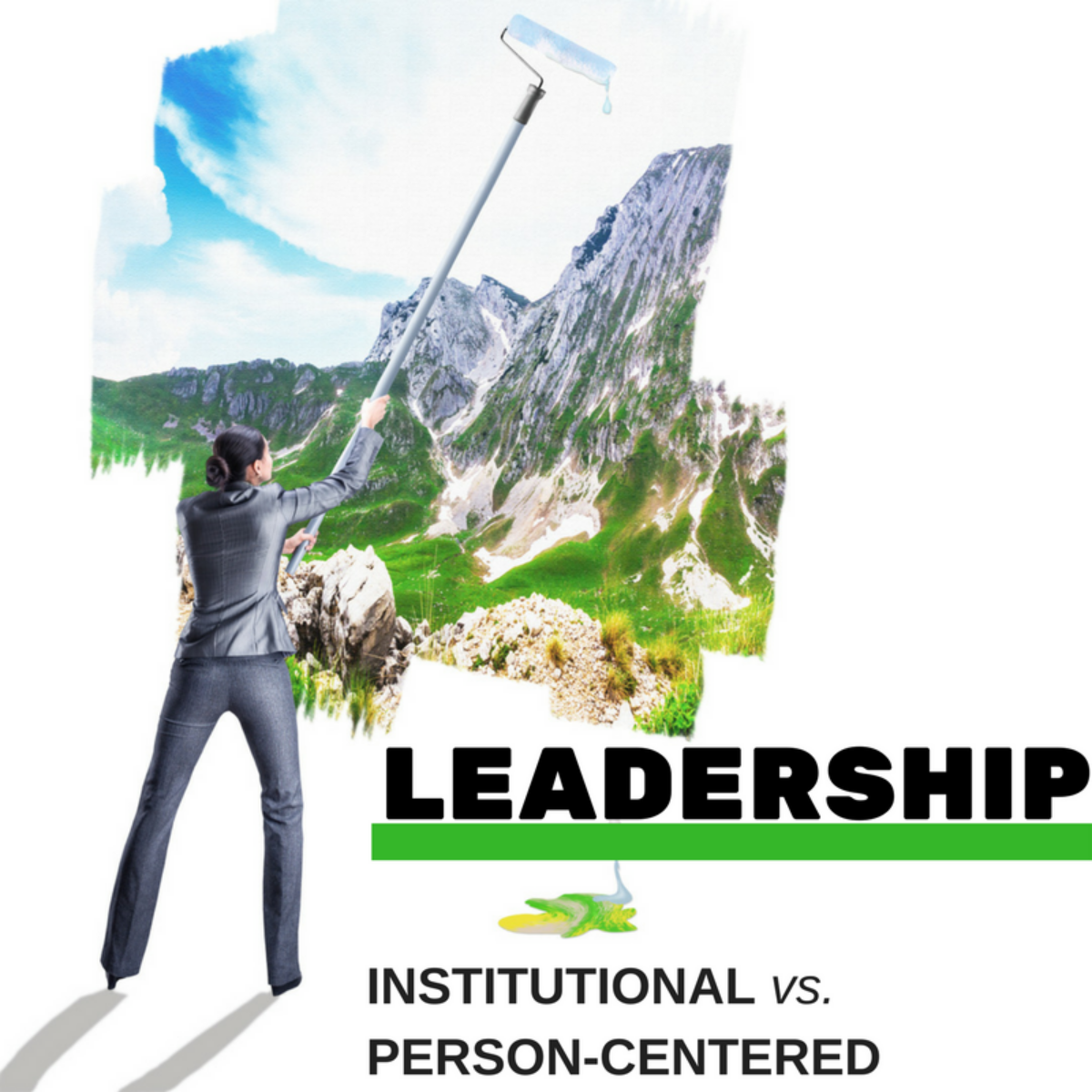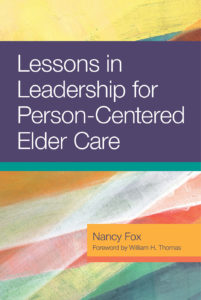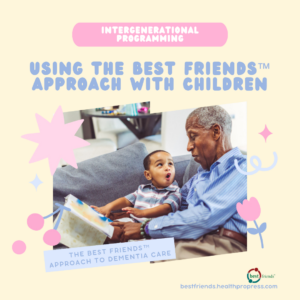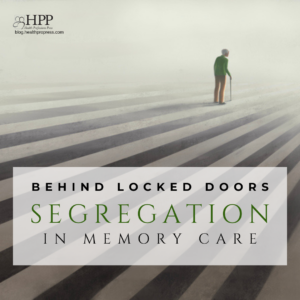
Leadership: Institutional vs. Person-Centered
What is person-centered leadership? Author Nancy Fox argues that it is the exact opposite of the outdated and harmful institutional leadership model. Here’s why.
This post was adapted from Lessons in Leadership for Person-Centered Elder Care by Nancy Fox. Copyright © 2017 by Health Professions Press, Inc. All rights reserved.
Have you ever been at a party and had someone leave the table to “toilet” themselves? Have you ever heard someone refer to their grandmother as “the feeder?” These are examples of horrendous language the institutional model in long-term care has given us. Indeed, there is much about the institutional model of care that is harmful, to both residents and staff. These outdated management and human resource practices make working in care communities almost insufferable.
In order to better our communities and care, we must shift our thinking and behavior away from this institutional model, and towards a person-centered model of leadership. Doing so will create a sustainable transformation and culture of growth in which each person contributes to a caring community.
Let’s take a look at these two different leadership models.
Institutional Leadership
The institutional model gave us one picture of leadership, and it goes something like this:
You have to have a title to be a leader.
No one else is expected to be a leader.
Leaders hold all of the decision-making authority.
And have the right to filter down this authority as they see fit without ever truly empowering others.
Formal leaders hold all of the information.
And dole it out on a “need to know” basis; unless you hold a title, you have little need to know.
It is the job of formal leaders to hold others accountable.
So they chase behind people like sheepherder dogs, nipping at their heels, trying to keep everyone in line.
Because leaders hold all of the authority, they also hold all of the accountability.
So these few very committed, caring, and tireless people work themselves until they burn out.
Accountability is weaponized.
Leaders use fear as a motivating factor because they believe it is the only way to hold people accountable. This creates an “us and them” context where the divide between management and staff or between corporate staff and facility staff is wider than the Grand Canyon.
Managers tend to judge their employees based upon attendance and timely task completion.
Because there are few people who want to work in this type of environment, managers tend to settle for less than the best in their employees. They fear not having enough staff, and allow bad behaviors in staff to go on forever.
Out of the ashes of the institutional model, however, a new kind of leadership is emerging.
Person-Centered Leadership
Some tenets of this new thinking include the following:
Person-centered leaders believe that leadership is a behavior. Not just a position.
All of us will at times be called to act as leaders, not just those of us with formal titles. A person-centered leader recognizes the potential in each person. When everyone in the organization is acting as a leader, there is no problem too big or challenge too great to meet.
Formal leaders in a person-centered care model share decision-making authority throughout their community.
They recognize that wisdom is not found in only one person’s head. Planning, evaluating, and directing one’s own work life helps motivate us.
Person-centered leaders understand that information is power.
Empowered teams need all of the information available in order to make good decisions. Leaders that are transparent and freely share information with everyone in the organization build trust and understanding. This narrows the gap between management and staff.
Person-centered leaders understand that their job is to create a context in which everyone can reach their highest potential.
This involves creating a context of universal accountability, where everyone is accountable, rather than hierarchical accountability, where only a few are accountable.
Person-centered leaders redefine accountability as growth.
They support universal accountability in which people care for each other by helping each other to grow. They do not need to use fear or threats; they have other ways of influencing behavior.
Person-centered leaders use the latest evidence-based science to inform the art of their leadership.
They understand that they have to grow themselves before they can expect others to grow. They understand that they create the context in which all behavior occurs.
I want to offer you a definition of person-centered leadership based on these tenets and new behaviors:
Person-centered leadership is the ability to create a context in which each person has the potential to be the best he or she can be for the world.
Creating a Community
To create and sustain an institution, one need only develop some policies and procedures, some disciplinary policies, some clearly defined job descriptions, and demarcated boundary lines. Then sit back and wait for people to break those policies or cross those boundaries, and punish them when they do. Then you just treat everyone the same. No exceptions.
To create and sustain a true human community requires a true leader, not a manager of systems and rules. Human communities are messy. They are organic. There are certainly boundaries and parameters and policies, but in true human community we struggle every day to find the right answer for this person on this day. We do not consult the rule book, but instead our hearts. We listen to everyone. We get all the information. We discuss and debate with each other. We cry with each other. We love each other. And then we try to do the right thing, not the easy or expedient thing. We support each other, and we learn from our mistakes and we try to do better.
This kind of community is not available to those stuck in institutional thinking or behavior. It is only available to those who dare to risk. Those great leaders who risk everything to grow themselves and others will be the ones who create a context where a real care community can flourish.
Read the book!
 Lessons in Leadership for Person-Centered Elder Care
Lessons in Leadership for Person-Centered Elder Care
By Nancy Fox
Copyright © 2017 by Health Professions Press, Inc.
Lead your organization to success in person-centered care, using these expert leadership and management lessons!





comments
hgf says
I needed to thank you for this great read!! I certainly enjoyed every bit of it.
I have got you bookmarked to look at new stuff you post…
Add comment
replies
Add comment